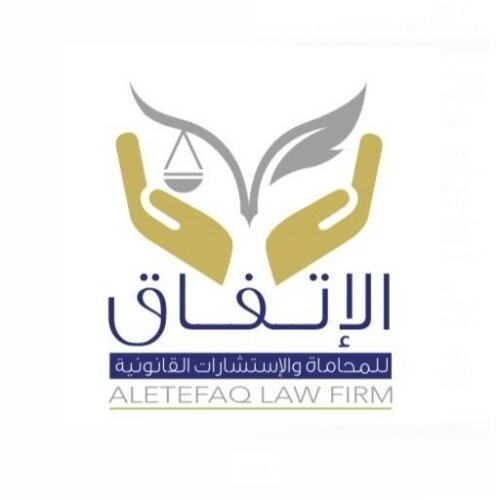Best Bankruptcy & Debt Lawyers in Qatar
Share your needs with us, get contacted by law firms.
Free. Takes 2 min.
Or refine your search by selecting a city:
List of the best lawyers in Qatar
About Bankruptcy & Debt Law in Qatar
Bankruptcy & Debt law in Qatar governs the legal framework for individuals and businesses facing financial difficulties. It provides mechanisms for addressing debt issues and seeking relief from creditors through bankruptcy proceedings.
Why You May Need a Lawyer
Legal assistance may be necessary in cases where individuals or businesses are unable to manage their debt obligations, facing lawsuits from creditors, or considering bankruptcy as a debt relief option. A lawyer can provide guidance on the best course of action and represent clients in legal proceedings related to debt issues.
Local Laws Overview
In Qatar, the Commercial Law governs bankruptcy proceedings for businesses, while the Civil Code regulates debt issues for individuals. Bankruptcy in Qatar is primarily focused on liquidation rather than reorganization, with a court-appointed liquidator overseeing the process. Individuals in debt can negotiate with creditors or seek court-supervised debt restructuring.
Frequently Asked Questions
1. What are the different types of bankruptcy in Qatar?
In Qatar, bankruptcy is primarily involuntary liquidation for businesses facing insolvency. Individuals can seek debt restructuring under the Civil Code to negotiate with creditors and repay debts over time.
2. Can a business continue operating during bankruptcy proceedings?
Businesses in Qatar typically cease operations during bankruptcy proceedings, as the focus is on liquidating assets to repay creditors. However, in some cases, a court may allow a business to continue operating under supervision.
3. How long does a bankruptcy process take in Qatar?
The duration of a bankruptcy process in Qatar can vary depending on the complexity of the case. It may take several months to years to complete the liquidation or debt restructuring process.
4. Are there alternatives to bankruptcy in Qatar?
Yes, individuals can seek debt restructuring or negotiate with creditors to avoid bankruptcy. Businesses may explore out-of-court settlements or restructuring options before filing for bankruptcy.
5. What are the consequences of bankruptcy in Qatar?
Bankruptcy in Qatar can have long-term financial consequences, including restrictions on starting a new business, obtaining credit, or holding certain positions in companies. It is essential to consider all implications before filing for bankruptcy.
6. Can creditors seize assets in Qatar?
Creditors in Qatar can seize assets through legal proceedings if debt obligations are not met. It is crucial to seek legal advice to understand rights and options when facing creditor actions.
7. What are the eligibility criteria for debt restructuring in Qatar?
To qualify for debt restructuring in Qatar, individuals must demonstrate financial hardship and inability to repay debts in full. Court approval is required for debt restructuring, and a repayment plan must be proposed to creditors.
8. How can a lawyer help with bankruptcy or debt issues in Qatar?
A lawyer can assist in navigating the legal process, representing clients in court proceedings, negotiating with creditors, and ensuring compliance with relevant laws and regulations. Legal advice is essential when dealing with complex debt and bankruptcy matters.
9. Is there a minimum debt amount required to file for bankruptcy in Qatar?
There is no specified minimum debt amount required to file for bankruptcy in Qatar. Individuals or businesses facing insolvency can seek bankruptcy protection regardless of the debt size.
10. Are bankruptcy proceedings public in Qatar?
Bankruptcy proceedings in Qatar are generally public, with court documents and proceedings accessible to creditors and the public. It is essential to maintain confidentiality and seek legal advice to protect personal or business interests during bankruptcy.
Additional Resources
For more information on bankruptcy and debt laws in Qatar, you can consult legal experts, the Qatar Financial Centre Authority, the Qatar Chamber of Commerce, or the Ministry of Justice for guidance and support.
Next Steps
If you are facing financial difficulties, debt issues, or considering bankruptcy in Qatar, it is advisable to seek legal advice from experienced lawyers specializing in bankruptcy and debt law. They can assess your situation, provide tailored solutions, and represent your interests in legal proceedings to achieve the best possible outcome.
Lawzana helps you find the best lawyers and law firms in Qatar through a curated and pre-screened list of qualified legal professionals. Our platform offers rankings and detailed profiles of attorneys and law firms, allowing you to compare based on practice areas, including Bankruptcy & Debt, experience, and client feedback.
Each profile includes a description of the firm's areas of practice, client reviews, team members and partners, year of establishment, spoken languages, office locations, contact information, social media presence, and any published articles or resources. Most firms on our platform speak English and are experienced in both local and international legal matters.
Get a quote from top-rated law firms in Qatar — quickly, securely, and without unnecessary hassle.
Disclaimer:
The information provided on this page is for general informational purposes only and does not constitute legal advice. While we strive to ensure the accuracy and relevance of the content, legal information may change over time, and interpretations of the law can vary. You should always consult with a qualified legal professional for advice specific to your situation.
We disclaim all liability for actions taken or not taken based on the content of this page. If you believe any information is incorrect or outdated, please contact us, and we will review and update it where appropriate.
Browse bankruptcy & debt law firms by service in Qatar
Qatar Attorneys in related practice areas.
Browse bankruptcy & debt law firms by city in Qatar
Refine your search by selecting a city.








